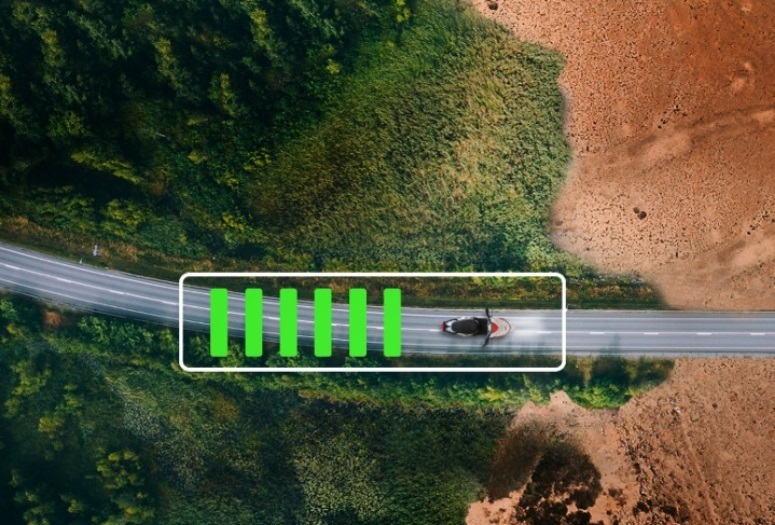How Much Does It Cost To Charge an Electric Scooter?
In the world where electric scooters are rapidly becoming popular, knowing the associated costs, especially the cost of charging, is essential. Here are some useful insights into how to optimize your electric scooter’s charging expenses.
Factors Affecting Electric Scooter Charging Cost
Battery Capacity:
The size of your electric scooter’s battery considerably influences the cost of charging. Larger batteries require extra energy to reach full charge, which increases the general electric scooter charging costs. For example, a scooter with a better battery capacity will draw more power amounting to added cost, compared to a smaller battery.
Electricity Rates:
The rates of electricity used play an important role in figuring out the price of charging an electric scooter. These charges can range based on your location, the time of day, and the type of power plan you have meaning domestic or commercial.
Charging Frequency:
How regularly you charge your electric scooter also affects the battery life. Frequent charging may be important for lengthy commutes or common use, leading to higher expenses over time.
Scooter Efficiency:
The performance of your electric scooter’s motor and battery system influences how much electricity is required for charging. More green scooters consume less power in line with the kilometre travelled, which could lessen electric scooter charging costs.
Calculating Electric Scooter Charging Costs
Basic Cost Calculation:
To estimate the price of charging an electric scooter, you can use the following formula:
- Cost per charge = (Battery capacity in watt-hours) x (Electricity rate per kilowatt-hour) / 1000
Example Calculation:
Example Calculation:
Consider a scooter with a battery capacity of 72V and 40Ah. The battery capacity in watt-hours can be calculated as follows:
Battery capacity (Wh) = Voltage (V) × Ampere-hours (Ah) = 72V × 40Ah = 2880W
If the electricity rate on average is ₹8 per kWh, the cost to charge the scooter would be:
Charging cost per full charge
2.88kWh × 8/kWh = ₹23.04
So, Your electric scooter will cost about ₹23.04 to charge fully. This formula helps you figure out how much charging costs. You can use it to plan your budget.
However, with the Mihos by Joy e-bike and its remarkable efficiency, you can travel 100 kilometres for just ₹17.
This exceptional cost-effectiveness, highlighted by Joy e-bike’s #17Mein100 campaign, demonstrates how Mihos offers both affordability and sustainability, making it an ideal choice for eco-conscious riders.
Using Online Tools:
Numerous online calculators will help you estimate the electric scooter charging costs based on your scooter’s specifications and local power charges. This will simplify the calculation process and offer short and correct cost estimates.

You can use the Niti Ayog Journey Cost Calculator, a government website. The Journey Cost Calculator can help you estimate total savings over a journey as well as annual savings.
Comparing Electric Scooter Charging Costs to Traditional Scooters
Compared to fuel scooters, the cost of charging an electric scooter is substantially low.
Fuel prices are frequently rising and can be lots higher than the cost of electricity, for daily commuting. Electric scooters provide a more solid and predictable price aspect, making them a better and more reasonable alternative over the years.
Cost-Saving Tips
Optimise Charging Habits:
To reduce your electric-powered scooter charging value, remember to optimise your charging behaviour. For instance, do not overcharge the battery and unplug it as soon as it is completely charged to save you empty electricity consumption.
Off-Peak Charging:
Charging your electric scooter in off-peak hours, when electricity rates are normally lower, can also help reduce expenses. This is particularly beneficial for customers with flexible schedules who can plan their charging times accordingly.
Battery Maintenance:
Proper battery preservation is critical for maximising efficiency and minimising charging costs. Regularly check the battery’s health, avoid deep discharges, and store it in a cool, dry place to extend its lifespan ensuring optimal performance.
In addition to the cost savings on charging, electric scooters also contribute significantly to environmental sustainability.

Joy e-bike’s #17Mein100 campaign highlights the impressive efficiency of electric vehicles, where you can travel 100 kilometres at just 17 rupees with Mihos.
This underscores the affordability of electric scooters and also their minimal environmental impact, making them a smart choice for eco-conscious consumers. By choosing an electric scooter, you’re saving on fuel costs while taking a meaningful step towards a greener future.
Understanding the factors that have an impact on electric scooter charging costs can help you make informed decisions and save money.
By considering battery capability, local electricity charges, charging frequency, and scooter efficiency, you can estimate your charging expenses appropriately.
The cost to charge an electric-powered scooter is normally lower than a fuel-powered scooter, giving widespread long-term financial savings. Consider switching to an electric scooter today and start calculating your capacity savings.

Post a Comment
You must be logged in to post a comment.